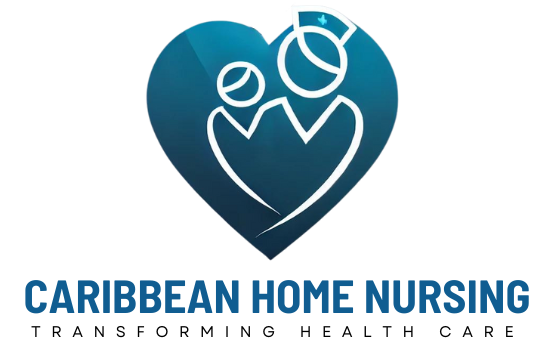As the population of Trinidad and Tobago ages, the demand for home nursing services for seniors is on the rise. Many families are seeking ways to provide their elderly loved ones with the care they need while allowing them to remain in the comfort of their own homes. Home nursing can be a viable solution, offering personalized care tailored to the unique needs of each individual. In this blog post, we will explore ten essential factors to consider when looking into home nursing for seniors in Trinidad and Tobago.
Understanding Home Nursing Services
Home nursing services encompass a wide range of healthcare and support services provided in the home setting. These services can include:
Personal Care: Assistance with daily activities such as bathing, dressing, grooming, and toileting.
Medical Care: Administration of medications, wound care, and monitoring of chronic conditions.
Physical Therapy: Rehabilitation services to help seniors regain mobility and strength.
Companionship: Social interaction and emotional support to combat loneliness and isolation.
Understanding the various services available is crucial for families to make informed decisions about the care their loved ones need.
Assessing Individual Needs
Before engaging a home nursing service, it is essential to assess the specific needs of the senior in question. This assessment should consider:
Medical Conditions: Chronic illnesses, mobility issues, and cognitive impairments.
Daily Living Activities: The level of assistance required for personal care and household tasks.
Social Needs: The importance of companionship and social interaction for mental well-being.
A thorough assessment will help families choose the right type of care and the appropriate level of support.
Choosing the Right Home Nursing Provider
Selecting a reputable home nursing provider is one of the most critical steps in ensuring quality care. When evaluating potential providers, consider the following:
Credentials and Licensing: Ensure that the nursing staff is qualified and licensed to provide care in Trinidad and Tobago.
Experience: Look for providers with experience in geriatric care and a good track record of service.
Reviews and References: Seek feedback from other families who have used the service to gauge satisfaction and reliability.
Taking the time to research and compare providers can lead to better outcomes for seniors.
Understanding Costs and Payment Options
Home nursing services can vary significantly in cost, depending on the level of care required and the provider chosen. Families should consider:
Hourly Rates vs. Flat Fees: Some providers charge by the hour, while others may offer flat fees for specific services.
Insurance Coverage: Check if health insurance or government programs cover any of the costs associated with home nursing.
Budgeting for Care: Create a budget that accounts for ongoing care needs, as these can change over time.
Understanding the financial aspects of home nursing can help families plan accordingly and avoid unexpected expenses.
Creating a Care Plan
Once a home nursing provider has been selected, it is essential to develop a personalized care plan. This plan should include:
Goals of Care: What the family hopes to achieve through home nursing, such as improved mobility or better management of chronic conditions.
Daily Routines: A schedule outlining daily activities, medication administration, and therapy sessions.
Emergency Protocols: Clear instructions on what to do in case of a medical emergency.
A well-structured care plan ensures that everyone involved is on the same page and that the senior receives consistent and effective care.
Communication is Key
Effective communication between family members, the home nursing provider, and the senior is vital for successful home care. Families should:
Establish Open Lines of Communication: Regularly check in with the nursing staff to discuss any changes in the senior’s condition or care needs.
Encourage Feedback: Ask the senior for their input on their care and any concerns they may have.
Document Everything: Keep records of medications, appointments, and any changes in health status to share with healthcare providers.
Good communication fosters trust and ensures that everyone is working together to provide the best care possible.
Monitoring and Evaluating Care
Ongoing monitoring and evaluation of the home nursing services are essential to ensure that the senior’s needs are being met. Families should:
Schedule Regular Check-Ins: Set aside time to meet with the nursing staff to review the care plan and make any necessary adjustments.
Observe Changes: Pay attention to any changes in the senior’s health or behavior that may indicate a need for a different level of care.
Solicit Feedback from the Senior: Regularly ask the senior how they feel about their care and if there are any areas for improvement.
By actively monitoring the care provided, families can make informed decisions and advocate for their loved ones.
The Role of Family Caregivers
While home nursing services can provide essential support, family members often play a crucial role in the care of their elderly loved ones. Family caregivers can:
Assist with Daily Activities: Help with tasks that the nursing staff may not cover, such as meal preparation and light housekeeping.
Provide Emotional Support: Offer companionship and understanding, which can significantly enhance the senior’s quality of life.
Coordinate Care: Act as a liaison between the home nursing provider and other healthcare professionals, ensuring that all aspects of the senior’s health are managed cohesively.
Recognizing the importance of family involvement can lead to a more holistic approach to care.
Legal and Ethical Considerations
When engaging home nursing services, families should be aware of the legal and ethical implications involved. This includes:
Informed Consent: Ensuring that the senior understands and agrees to the care being provided.
Privacy and Confidentiality: Respecting the senior’s privacy and maintaining confidentiality regarding their health information.
Advance Directives: Discussing and documenting the senior’s wishes regarding medical treatment and end-of-life care.
Being informed about these considerations can help families navigate the complexities of home nursing with confidence.
The Importance of Cultural Sensitivity
In Trinidad and Tobago, cultural factors play a significant role in how care is perceived and delivered. Home nursing providers should be culturally sensitive and aware of:
Cultural Practices: Understanding and respecting the senior’s cultural beliefs and practices related to health and wellness.
Language Barriers: Providing services in the preferred language of the senior to ensure clear communication.
Family Dynamics: Recognizing the importance of family involvement in care decisions and respecting the family’s wishes.
Cultural sensitivity can enhance the relationship between the caregiver and the senior, leading to better care outcomes.
FAQs About regarding home nursing for seniors in Trinidad and Tobago:
Q. What is home nursing for seniors?
Ans: Home nursing for seniors involves providing healthcare and support services in the comfort of the senior’s home. This can include personal care, medical assistance, companionship, and rehabilitation services tailored to the individual’s needs.
Q. What types of services are included in home nursing?
Ans: Home nursing services can include personal care (bathing, dressing, grooming), medical care (medication management, wound care), physical therapy, companionship, and assistance with daily living activities.
Q. How do I choose a home nursing provider?
Ans: When selecting a home nursing provider, consider their credentials, experience, reviews from other families, and the range of services they offer. It’s also important to meet with the staff to ensure they are a good fit for your loved one.
Q. How much does home nursing cost in Trinidad and Tobago?
Ans: The cost of home nursing services can vary widely based on the level of care required, the provider, and the duration of services. It’s advisable to inquire about hourly rates, flat fees, and whether any insurance or government programs can help cover costs.
Q. How can I assess my loved one’s care needs?
Ans: Assessing care needs involves evaluating the senior’s medical conditions, daily living activities, mobility, and social needs. Consulting with healthcare professionals can also provide valuable insights into the level of care required.
Q. What should be included in a care plan?
Ans: A care plan should outline the goals of care, daily routines, medication schedules, therapy sessions, and emergency protocols. It should be personalized to meet the specific needs of the senior.
Q. How can I ensure effective communication with the nursing staff?
Ans: Establish open lines of communication by scheduling regular check-ins, encouraging feedback from the senior, and documenting any changes in health status. Regular discussions with the nursing staff can help ensure everyone is aligned on care needs.
Q. What role do family caregivers play in home nursing?
Ans: Family caregivers can assist with daily activities, provide emotional support, and coordinate care with the home nursing provider. Their involvement is crucial for a holistic approach to the senior’s care.
Q. What legal considerations should I be aware of?
Ans: Families should be aware of informed consent, privacy and confidentiality regarding health information, and advance directives that outline the senior’s wishes for medical treatment and end-of-life care.
Q. How can cultural sensitivity impact home nursing?
Ans: Cultural sensitivity is important in home nursing as it involves understanding and respecting the senior’s cultural beliefs, practices, and family dynamics. This can enhance the caregiver-senior relationship and improve care outcomes.
Final Thoughts On Home Nursing for Seniors in Trinidad and Tobago
Home nursing for seniors in Trinidad and Tobago is a growing field that offers numerous benefits for families seeking to provide care for their elderly loved ones. By considering these ten essential factors, families can make informed decisions that ensure their loved ones receive the best possible care in the comfort of their own homes. As the demand for home nursing services continues to rise, it is crucial to prioritize quality, communication, and cultural sensitivity to create a supportive environment for seniors.







